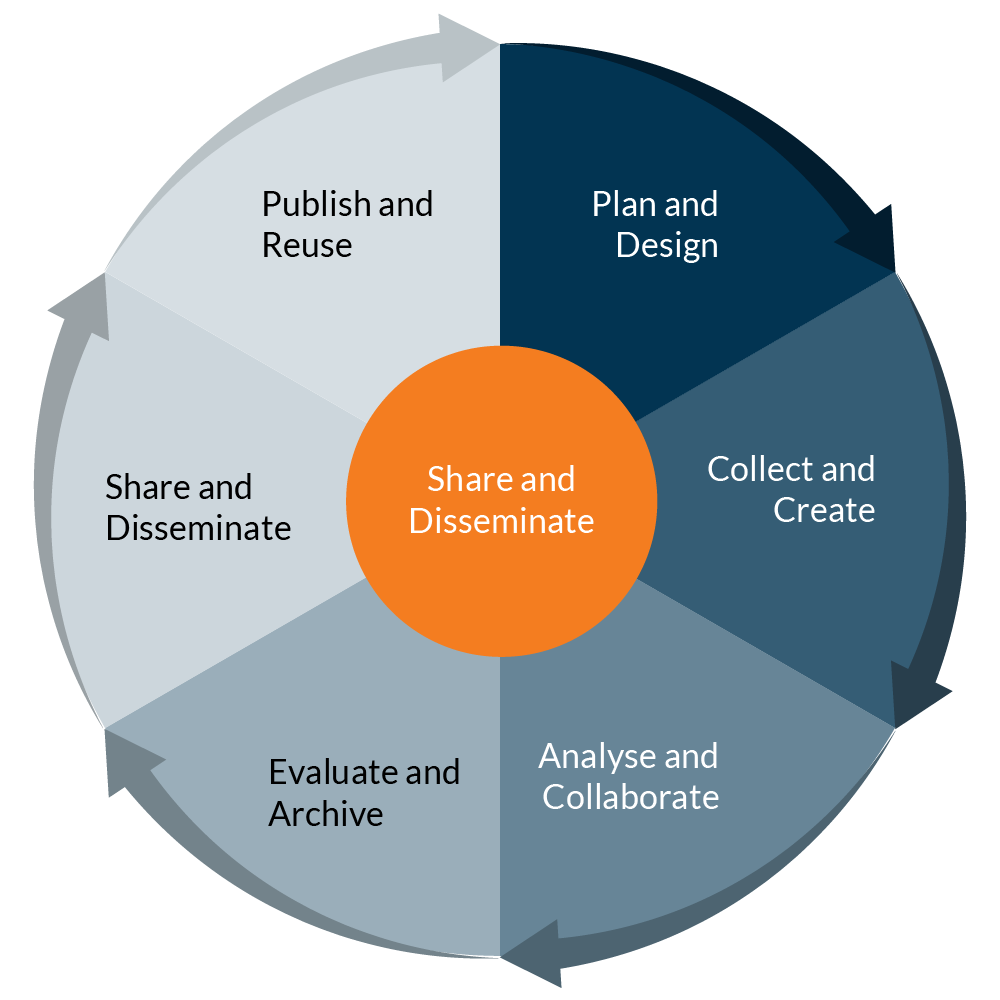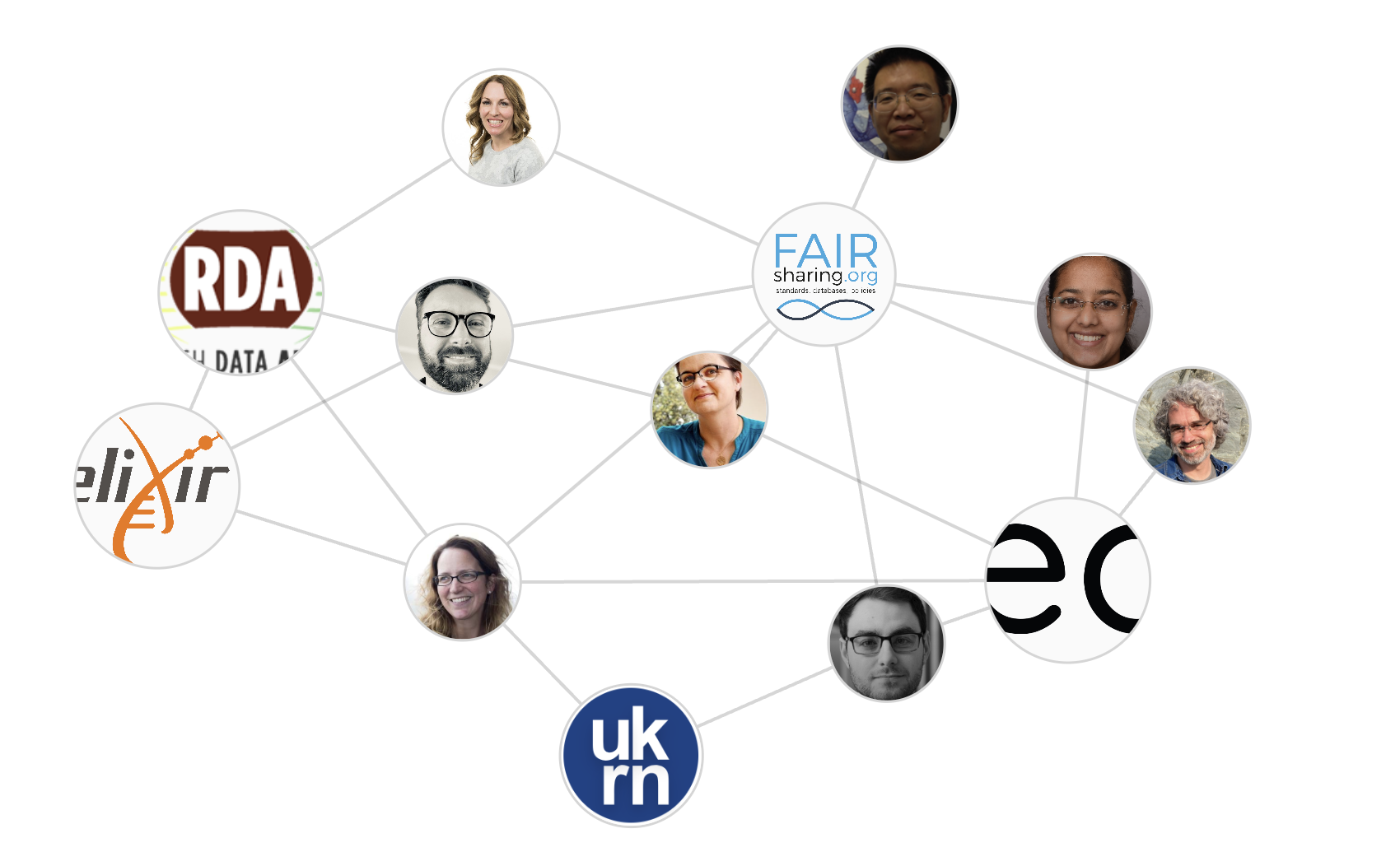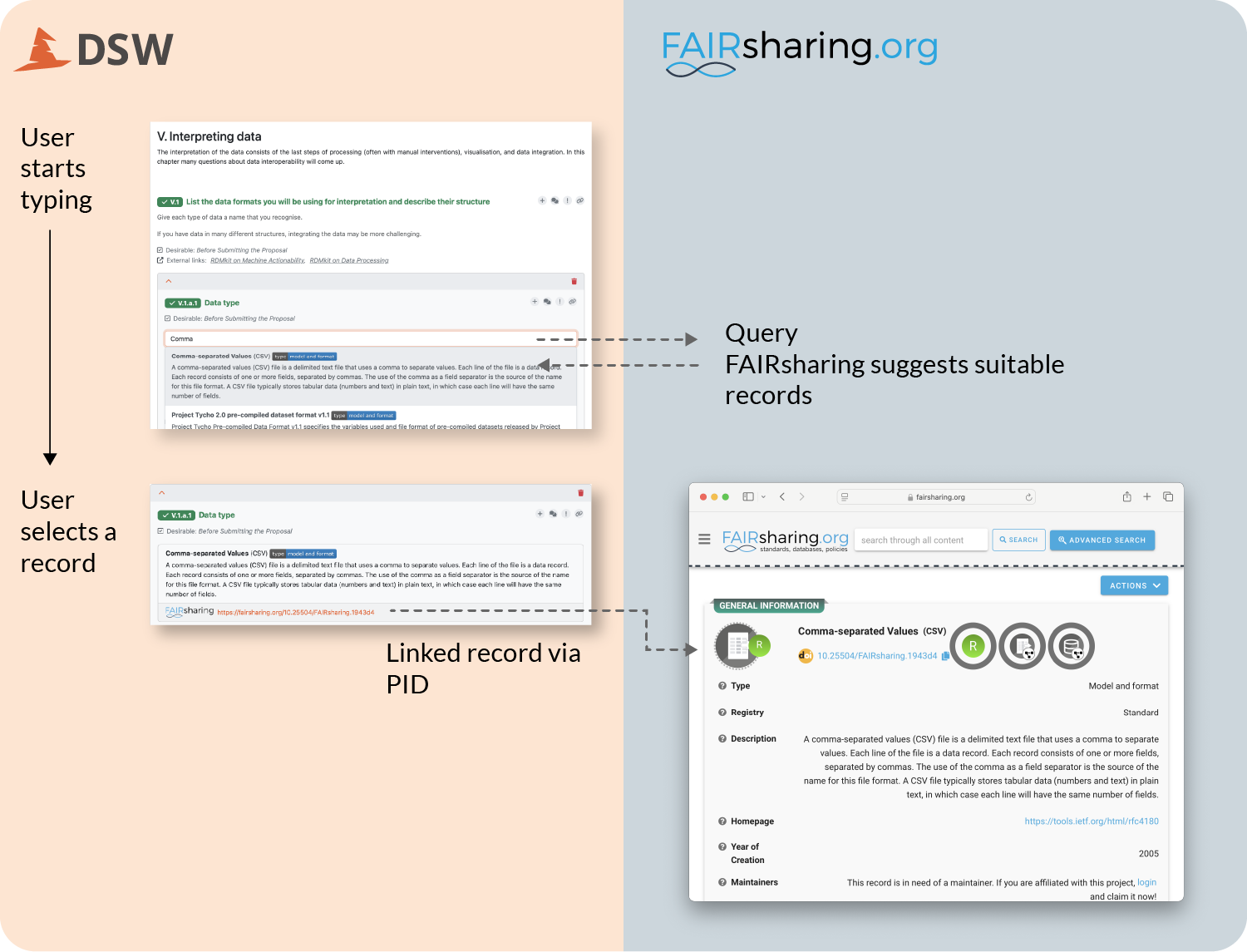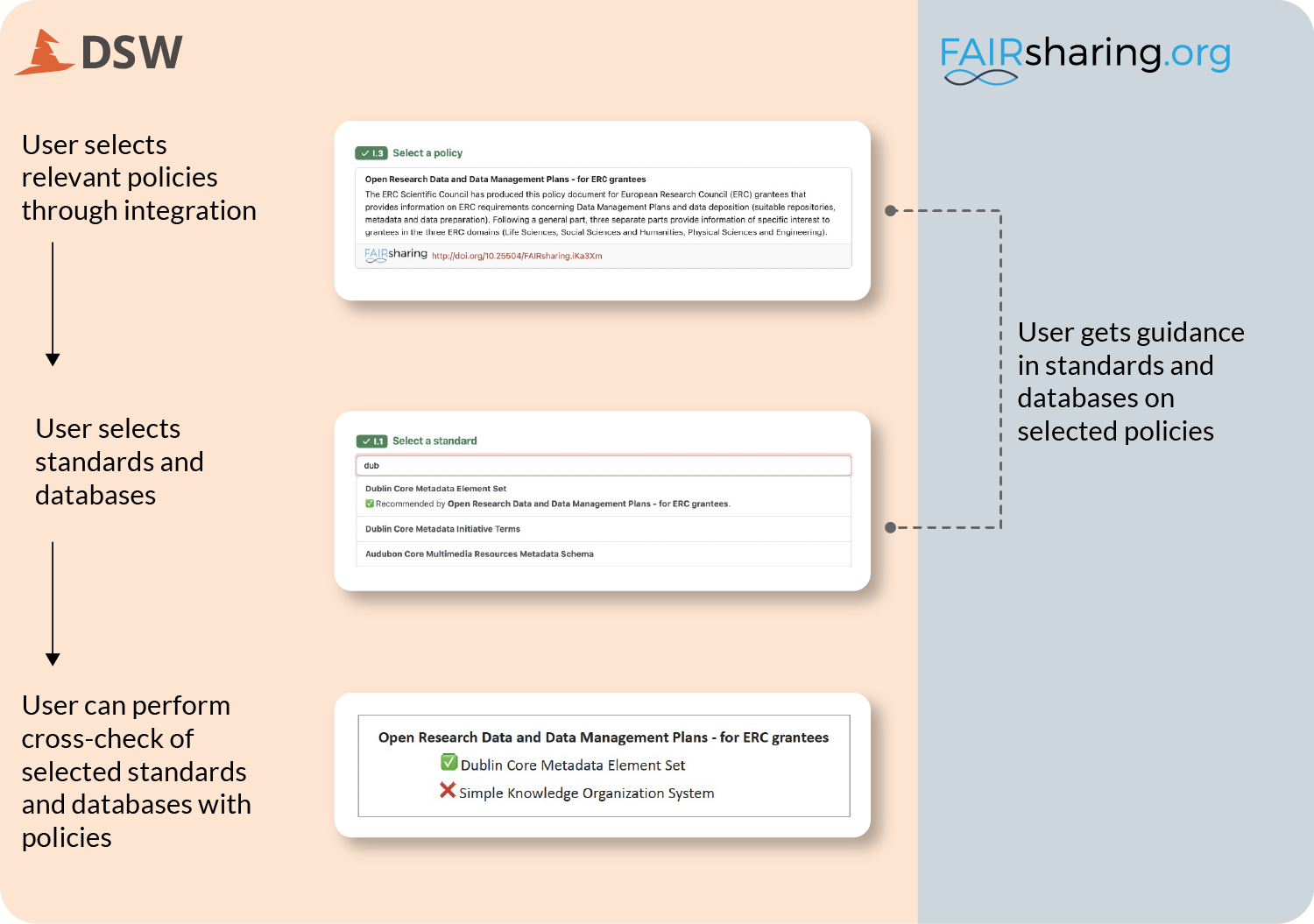When I began working with ELIXIR as a FAIRsharing representative, my first impression was of diversity; organisations across Europe are working to build a connected set of tools, databases, and standards for enabling FAIR and open science from a myriad of viewpoints.
To me, it is this connectivity – the relationships among the people as well as the services and tools – that is ELIXIR’s greatest strength. ELIXIR is a vital source of expertise and engagement that complements FAIRsharing’s needs, providing a pool of interested domain experts who are highly connected within their own communities.
Even Arnold Schwarzenegger believes that every success is built through community. The community of digital objects and their relationships elevate research; this is why FAIR and open have gained so much traction, as they enable those relationships to be defined and identified. Researchers need the community to enact the research data lifecycle.

- Plan & Design: Plan processes from onboarding to project closure and data resources
- Collect & Create: Organization and integration of data sets and collection processes Aspects that require a strong community:
- Analyse & Collaborate: Processing and analysing data should be collaborative and documented
- Store & Manage: Each stage of the Biomedical Data Lifecycle revolves around the management of data storage
- Evaluate & Archive: Identify essential research records and evaluate for retention
- Share & Disseminate: Establishing and supporting the reach and impact of your data
- Publish & Reuse: Ensuring the broad utility of your research data efforts for other researchers
Community protects against duplication of effort, creates a stable research environment, and ensures diversity of roles, people, and organisations. In short, researchers need a community to enact high-quality research; conferences, infrastructures, projects, and a wide array of common goals are just a few of the methods through which modern research communities engage.

Enhancing collaboration: Data Stewardship Wizard meets FAIRsharing
A shining example of this collaborative spirit is the recent partnership between the Data Stewardship Wizard (DSW) and FAIRsharing. Building on a strong history of collaboration and the needs of international user communities, we are in the process of increasing the connectivity between our widely-used resources.
DSW helps researchers and data stewards create data management plans (DMPs) easily and efficiently; it also makes the DMPs machine-actionable to accelerate their review and use. FAIRsharing is a curated, informative, and educational resource on data and metadata standards interrelated with databases and data policies across all disciplines.
FAIRsharing serves users and producers of these resources but also powers third-party tools by providing trustworthy content to enable data management tasks. The latter is the focus of this new phase of the collaboration, which is set to deliver the powerful interrelated content of FAIRsharing to the DSW users and help them create DMPs more easily and confidently. This is a functionality that no other DMP platform has to date.
Supporting the research data lifecycle with DMPs
DMPs play the crucial role of outlining researchers’ intentions in following best practices to ensure datasets, code, and other digital objects are Findable, Accessible, Interoperable and Reusable (FAIR). With numerous European, international, and national funders following suit, DMPs are now widely promoted as a valuable tool for implementing effective data management.
To build effective DMPs, authors of those DMPs must be able to unambiguously and explicitly identify and name the community standards (e.g., terminologies, models, formats, minimal information requirements) and databases (repositories, knowledgebases) appropriate for describing and sharing their type of digital object (e.g., datasets, software, survey) within their discipline(s), as well as know the requirements of their funder’s policy. Given the wealth of standards and databases, knowing what to choose is often not accessible for researchers and those supporting them.s

The current integration between the DSW and FAIRsharing provides as-you-type hints for standards and database,, a functionality that many tools powered by FAIRsharing have. However, with this new collaboration, we go a step further and make FAIRsharing the single ‘trusted point of truth’ for DSW users with regards to standards, databases and policies, providing them with an unprecedented ‘select with confidence’ ability.
These features within DSW are enabled by the rich and curated description of standards, databases and policies in FAIRsharing, with tags by disciplines and interlinks according to their relations. For example, in a given discipline, specific representation models for datasets require one or more terminologies to describe the parts; these models and terminologies are essential for the submission of the dataset to one or more databases. Therefore knowing what set of standards to use and for which database is critical, and the relationships in FAIRsharing will provide the necessary interlinked content that will help the DSW users in a way that is not done by any DMP platform to date.

Key features: Making FAIR data management easier
Key features of this new collaborative phase include:
-
Identifiability: FAIRsharing DOIs are already used to unambiguously describe standards, databases within DSW and its stable of tools; this will be extended to policies.
-
Connectivity: DSW will incorporate the FAIRsharing network graph, making relationships among standards, databases and policies accessible to DSW users. The DSW will allow specific policies to be declared as applicable in DMP questionnaires and then leverage them to provide policy-based guidance. In such cases, the standards and databases recommended by these policies will be highlighted to DMP authors as particularly relevant to those policymakers.
-
Machine actionability: This collaboration will further enhance the creation of machine-actionable DMPs (maDMPs) through the use of FAIRsharing DOIs within DMPs and the ability to pull appropriate resource metadata from FAIRsharing records following the principles of Linked Open Data.
ELIXIR is an infrastructure with a community built into every interaction. As with DSW and FAIRsharing, tools and services developed and supported within the ELIXIR network are true neighbours; whether or not you are a part of ELIXIR, using one of these member tools will make your project a part of this ecosystem of engagement and collaboration. By creating relationships and collaborations with other communities, everyone benefits.
This work is funded in part by OSTrails and the ELIXIR-UK DaSH Fellowship.




